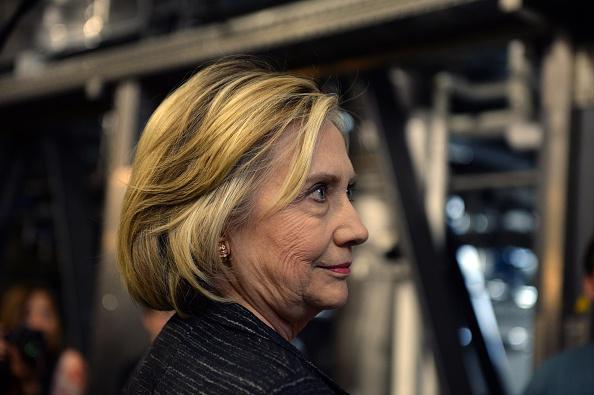Repressive regimes in Algeria, Kuwait, and Qatar donated to the Clinton Foundation while Hillary Clinton was secretary of state and also “gained State Department clearance to buy caches of American-made weapons” during that time, an International Business Times investigation reports.
The IBT piece reviews all known donations to the Clinton Foundation by countries and defense contractors involved in arms deals that were approved by the State Department during Hillary Clinton’s tenure. During a broader increase in military exports under the Obama administration, more than $300 billion worth of weapons shipments were approved to 20 countries that were or have since become Clinton Foundation donors. Some of these recipients were longtime United States allies, such as Australia and Germany, with relatively upstanding recent records on human rights. Others weren’t:
The State Department formally approved … arms sales even as many of the deals enhanced the military power of countries ruled by authoritarian regimes whose human rights abuses had been criticized by the department. Algeria, Saudi Arabia, Kuwait, the United Arab Emirates, Oman and Qatar all donated to the Clinton Foundation and also gained State Department clearance to buy caches of American-made weapons even as the department singled them out for a range of alleged ills, from corruption to restrictions on civil liberties to violent crackdowns against political opponents.
Among those countries, Algeria, Oman, Qatar, and Kuwait are known to have given money to the Clinton Foundation specifically during Hillary Clinton’s tenure at State.
As the piece explains, foreign donations to government officials’ private nonprofits aren’t illegal—but that’s something of a loophole:
Under federal law, foreign governments seeking State Department clearance to buy American-made arms are barred from making campaign contributions – a prohibition aimed at preventing foreign interests from using cash to influence national security policy. But nothing prevents them from contributing to a philanthropic foundation controlled by policymakers.
The IBT also found that Boeing, Lockheed, and Goldman Sachs paid Bill Clinton personal speaking fees at around the same time that arms deals in which they had a financial interest were approved by Hillary Clinton’s State Department.
In the end, the IBT piece doesn’t reveal any smoking-gun evidence of a corrupt quid-pro-quo transaction. But it does document again that a presidential candidate who’s already taking a lot of heat for her cavalier attitude towards questions of money, ethics, and secrecy has often been willing to tolerate high-stakes conflicts of interest.
